How did the universe begin?
Science and religion both fail to answer this question, but asking it is portal into a world of wonder all the same
Welcome to Cosmic Junkyard, a biweekly column about the world’s most interesting unanswerable + unanswered questions.
I’d place this week’s question firmly in the unanswerable territory, though I’d love to hear if you disagree.
In a column about the world’s most interesting unanswered or unanswerable questions, I’d be remiss not to tackle one of the greatest mysteries of all: where it all began.
I mean all this. The grasses. The wind. Skin upon bones, soil upon stone. Planets whipping around gigantic burning orbs of fury and mathematics and light.
Whose idea was this? Whose dream, whose master plan?
Or was it all truly random? And if so, how did that randomness conceive things like Fibonacci sequences and webs of neurons that mirror tree roots and galaxies?
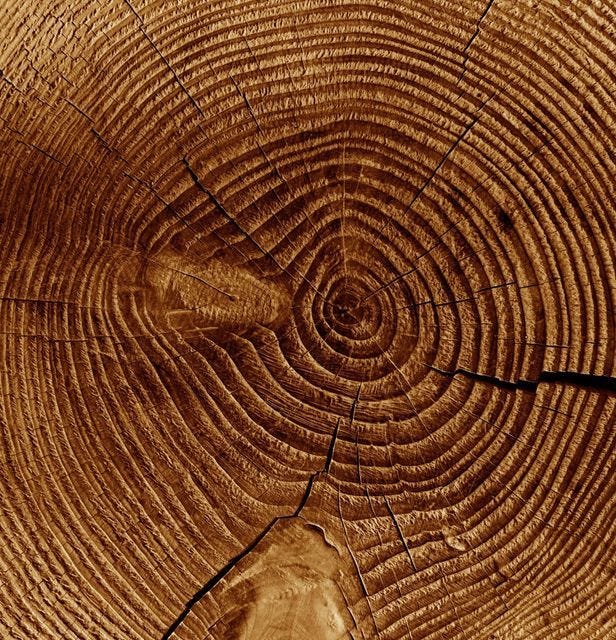
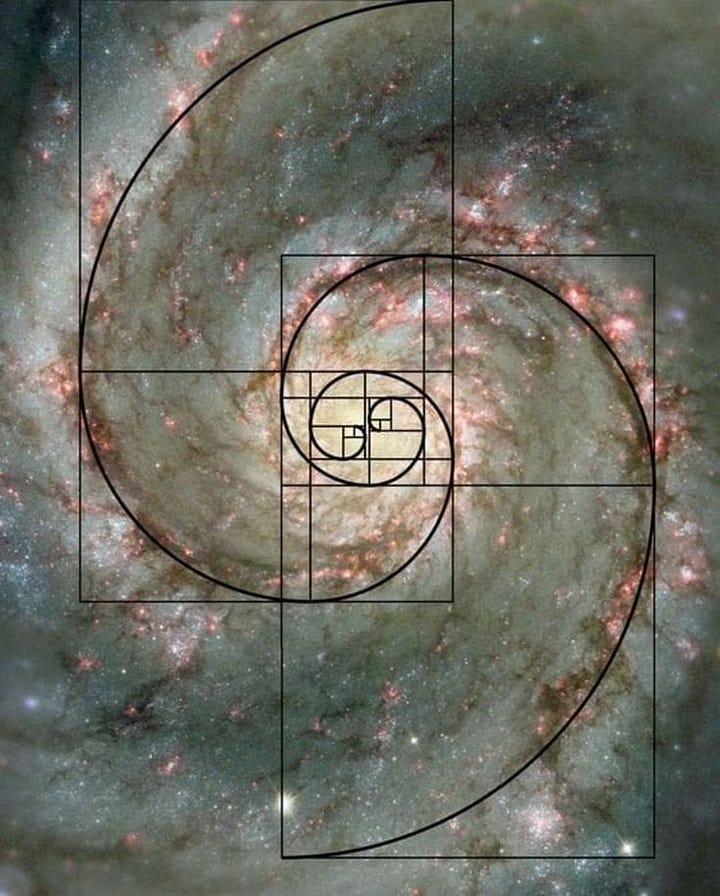
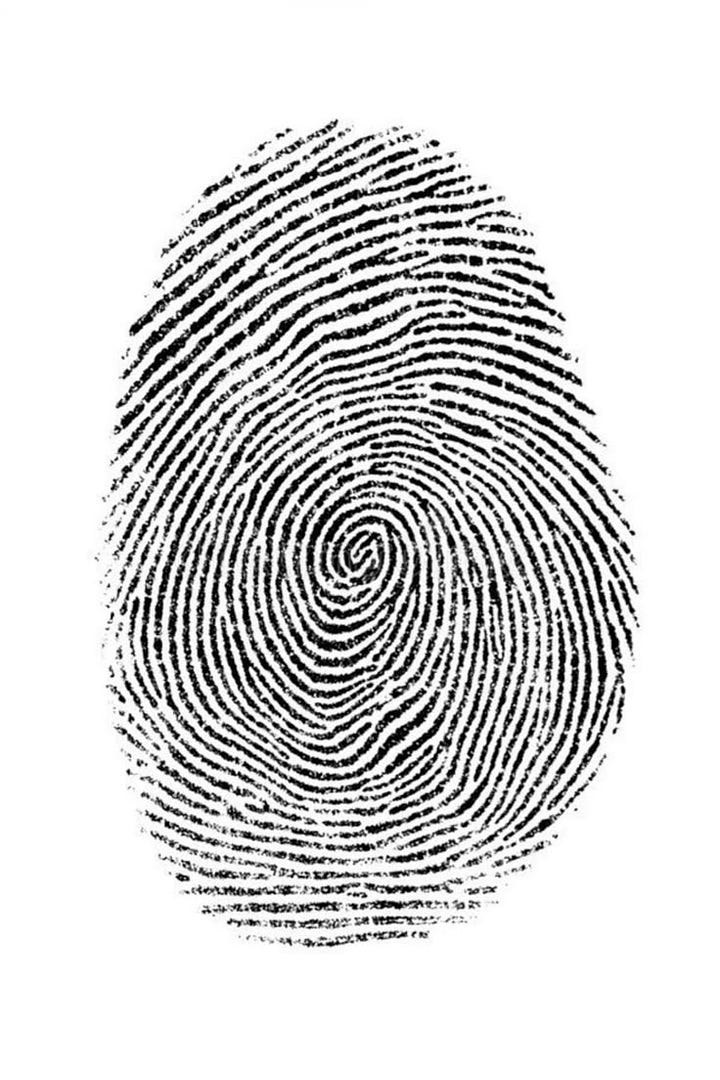
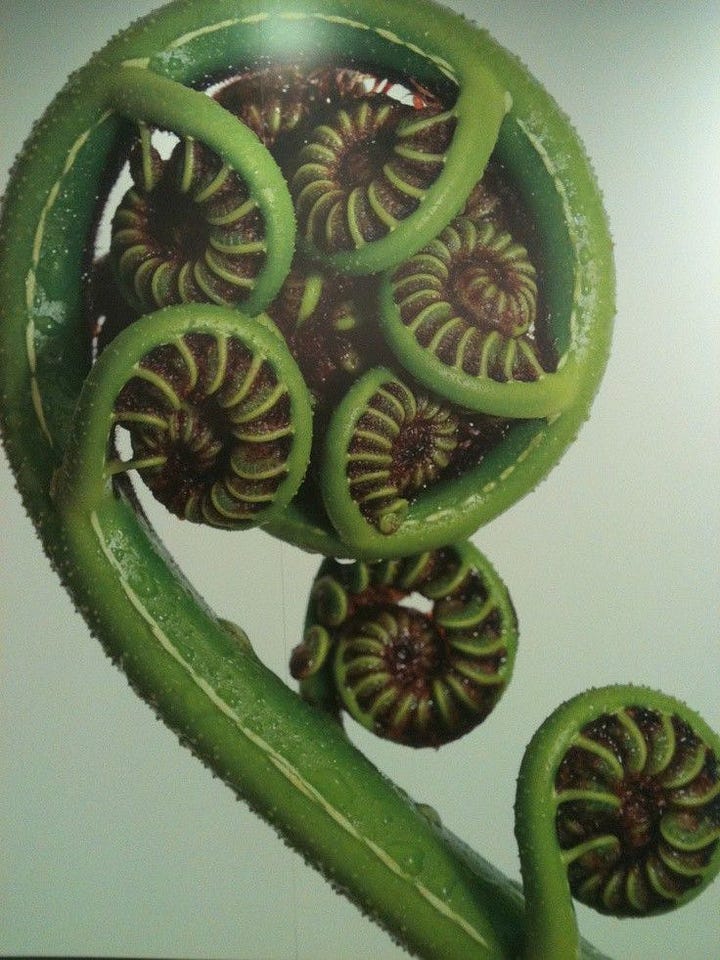
Science and religion both offer up some answers. Of course, the most widely accepted scientific theory of how everything began is the Big Bang.
According to this theory, the universe was conceived when an extremely hot and infinitely tiny point of heat and light began suddenly expanding, echoing outwards far faster than the speed of light.
When at last it came to a relative standstill, the theory goes, waves of matter and radiation began sowing the seeds of what would become me writing this and you, reading this.
According to NASA, this initial period of expansion may all have happened within a single second. The temperature of this primordial soup: around 10 billion degrees. The date: 13.8 billion years ago.
Think of it. A vast nothing. A blank without space and time.
Then, all at once, a hot flame in the darkness. A ripple, a flame catching into a forest fire, and then, with a bit of time-space spice and a bunch of chemical reactions sprinkled into the cosmic brew, all this.
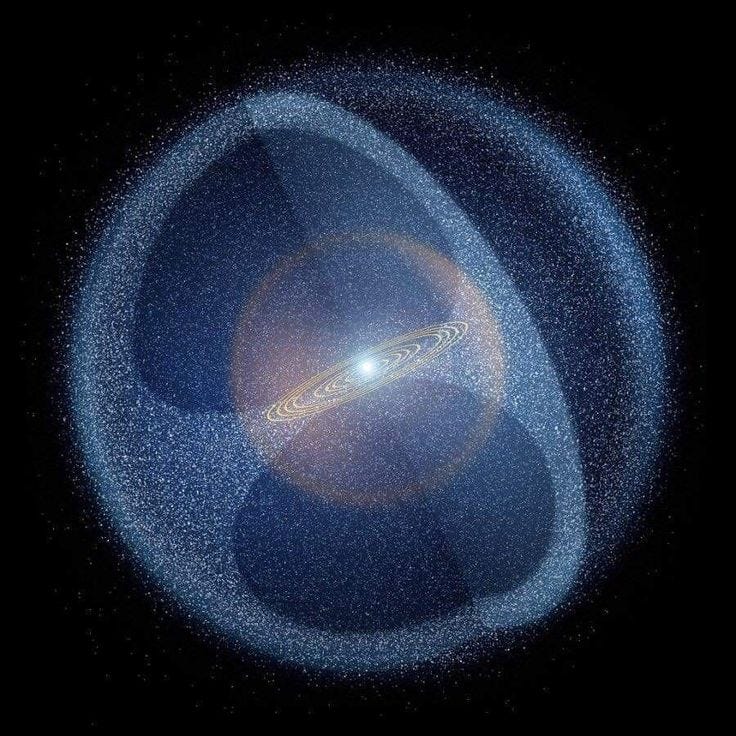
This theory is the best we’ve currently got, but it is also tattered with both scientific and ontological holes. First off, it doesn’t explain why or how that initial expansion actually kicked off in the first place, let alone how and why any of this wound itself into matter that resulted in the formation of the human brain and our capacity to ask these questions.
Many other theories have attempted to fill in these gaps, such as tthe many-worlds theory, which posits the existence of many branching realities layered on top of one another. In this paradigm, the Big Bang may have been the result of another universe’s dissolution, and so on in an endless spiral.
There’s also the more recent discovery that dark matter and dark energy make up the majority of our universe, and may have been key to developing our universe’s shape and size. This material may have acted as a kind of cosmic scaffolding, propping up a web of matter so vast that individual galaxies look like grains of sand.
Scientists are also looking for clues about our origins in things like cosmic microwave background radiation, which fills the entire universe and is believed to contains echoes of the original radiation that sparked everything into being. These radio waves resemble the signals that transmit information from radio stations to our living rooms, and carry bits of our universe’s first primordial gasp of light. In short, we’re all walking around in the ghostly radio waves left over from the initial Big Bang.
As for what came before the Big Bang, there’s the cosmic inflation theory, which posits that before the Big Bang, the universe consisted of pure, undiluted energy. Yet ultimately, most scientists conclude that we simply don’t and cannot know what caused the very first thing ever.
And this is where science still must cede to God.
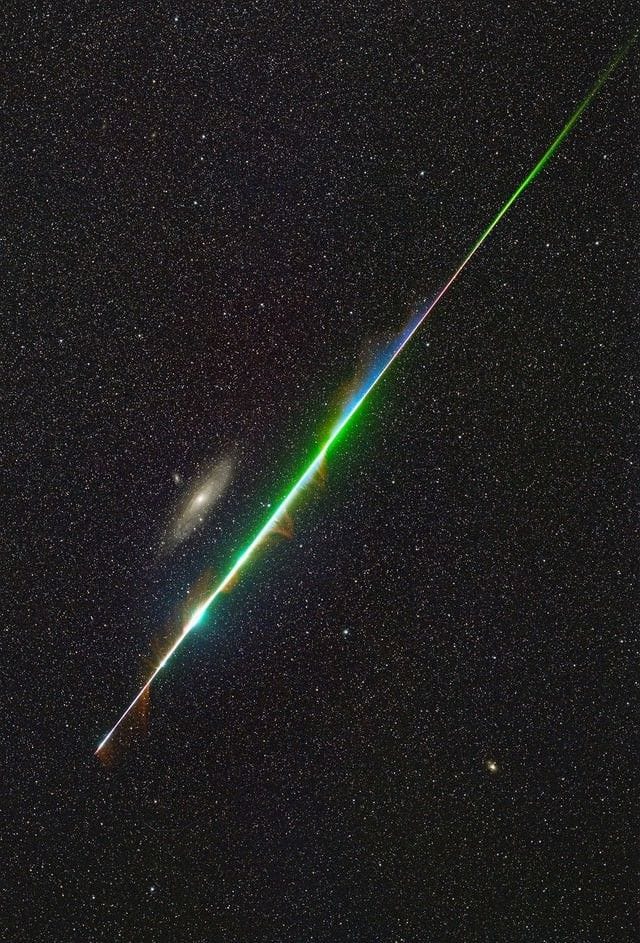
Thousands of years before Edward Hubble gazed at the skies in the 1920s and conceptualized the expanding universe theory, which later spawned the Big Bang idea, religions were preaching their own version of the events that led to all this. Yet even they often admit that they have no idea why it all started.
The Vedas, sacred Indian cosmological texts which likely emerged between 1500 and 1200 BCE, bluntly state that humans will never know how the universe was born. They also theorize that gods emerged quite a while after the universe originated.
These texts do suggest that before existence, there was a kind of ur-nothing — a nothingness that transcends the idea of nothingness (with its implication of somethingness) entirely.
“Then, there was neither non-existence nor existence. There was no space, nor sky above. What covered it? Where was it? In whose protection? Was there water, deep and unfathomable?” the Vedas ask, per one translation. “Neither death nor immortality was there then. No sign of night or day.”
But still, there was something: “That One breathed by its own nature, without air. Besides that, there was nothing else.”
Then, a shift. “Darkness there was at first, by darkness hidden; the universe was undistinguished like water,” the text continues. “That which, becoming, by the void was covered; that One by the force of heat came into being. Desire first arose in It, which was the primal seed of mind.”
Heat. Desire. Were these why the universe was born? Was there some sort of spark that caught, and wanted more of itself, more light, more life?
Still, even now, we are all just bending towards more life.
Many other religious stories mention a source of the universe that exists beyond a nothing-something binary. “The Tao that can be trodden is not the enduring and
unchanging Tao. The name that can be named is not the enduring and
unchanging name,” Lao-Tzu writes of the fundamental, eternal essence of the universe in the Tao Te Ching. “(Conceived of as) having no name, it is the Originator of heaven and earth; (conceived of as) having a name, it is the Mother of all things.” In short: Some unnamed, unknowable, unthinkable force brought this all into existence.
Many Indigenous faiths speak of worlds created by some kind of great fall from the sky — the Iroquois speak of Sky Woman, whose descent from a floating island led to animals helping her craft the Earth. Other stories invoke eggs or gigantic wombs or cosmic serpents when speaking of the universe’s origins.
However, when addressing the very beginning of the entire universe, these stories often return to notions of either a Creator who started everything or a darkness and stillness that was broken by inexplicable, miraculous light. Light that bloomed out into the firmament and spiraled out into stars and planets.
Sometimes the light was shaped by a trickster god, as in Cree stories. Sometimes, as in Aboriginal cosmologies, spirits existed before matter. But always, there’s that first nothing, broken by that first something.
Other cosmologies seem to suggest that the universe seemed to exist in a state of chaos before order was imposed. Japanese cosmology proposes that the universe existed in a chaotic, disordered state until sound — given off by the movement of small particles — created the world. Ancient Greek cosmology also tells a story of a primordial god called Chaos that birthed the universe, resulting in the existence of earth/Gaia, sky/Uranus, and other deities.
Meanwhile Islam, Judaism, and Christianity unequivocally suggest that God created the universe. Often this creative effort begins with speech, as if God spun existence like some yarn told around a cosmic campfire.
The Book of Genesis says God created the universe with a word, which sparks a flood of light upon the dark and deep. The Qu’ran also says God’s intention willed the universe into existence. “When He decrees a thing, He only says to it ‘Be’ and it is,” it declares.
These stories never really address the question of how or if God was created in the first place. Perhaps asking would be to presume that God could ever not be, which would certainly leave a dent on His all-encompassing power, at least in the monotheistic framework.
Aristotle attempted to explain God’s existence-within-nonexistence by describing God as an unmoved mover, a being that could exist in the ur-nothing before nothing and something even became a binary split — a kind of quantum mastermind that was never born and can never die and is also in everything, an explanation which honestly sounds reasonable and likely to me.
Buddhism, meanwhile, postulates that the universe is cyclical and is recreated every moment. In this paradigm, nothing is independent, and there is no creator, and everything exists within everything else, eternally within each moment.
There are actually some scientific theories that evoke this idea, such as the aforementioned many worlds or multiverse theory that proposes that before the Big Bang, there were many other universes that arose and collapsed, and on and on in an endless loop.
Yet Buddha also said that questions about eternity and infinity are unanswerable and actually do not benefit the goal of existence, which is to escape suffering by transcending the wheel of death and rebirth.
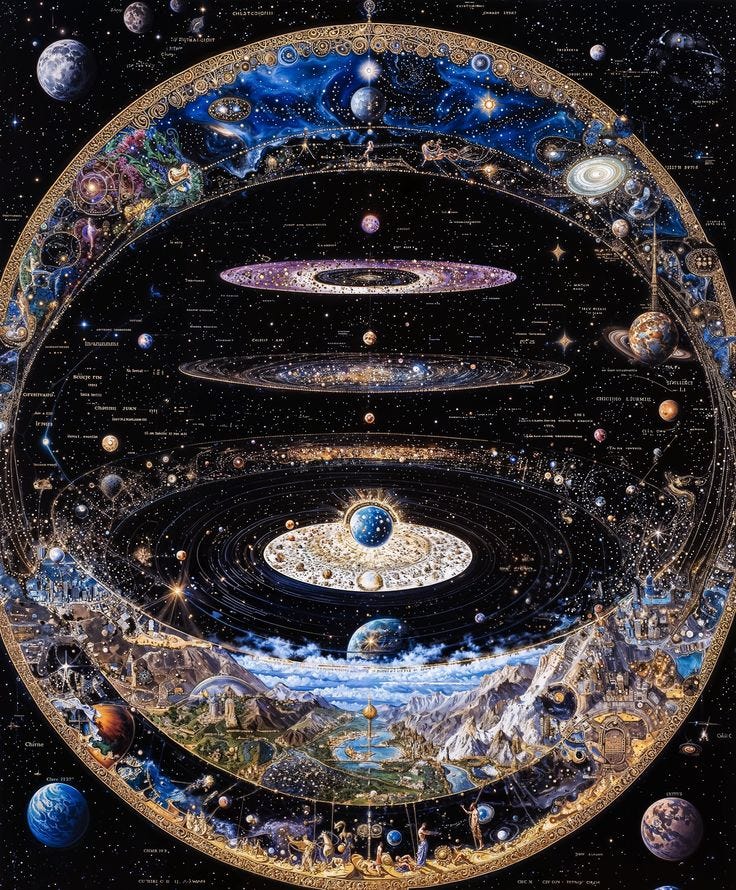
Perhaps, then, this is a good place to end all this questioning. Perhaps it is enough that the origins of all things remains a mystery — something so miraculous that only something as vast as a question can even begin to hold it.





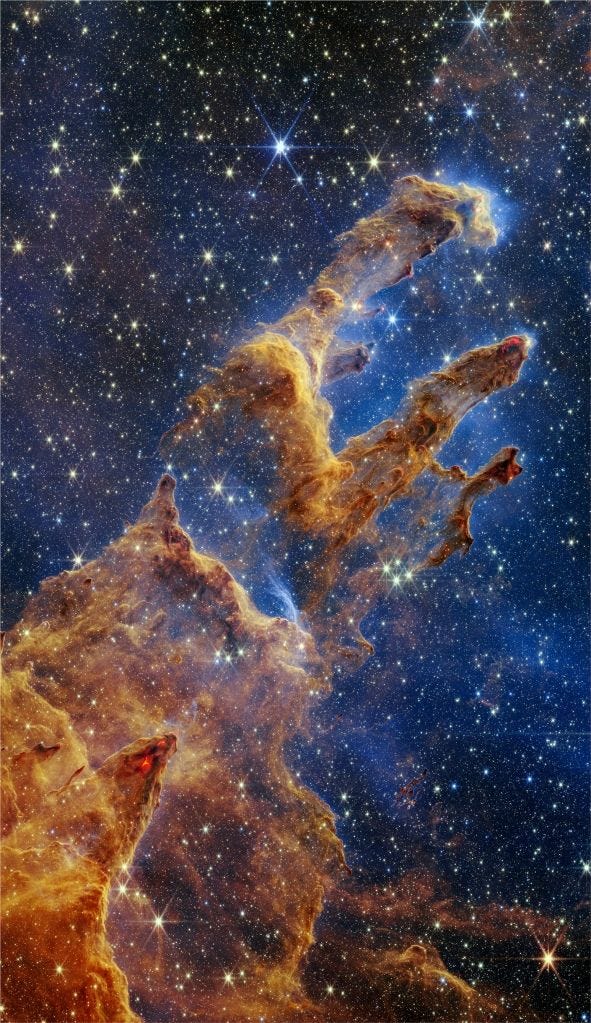
Galaxies were only discovered after 1920! The astronomers thought that the fuzzy patches were just star clusters. Since then, they have discovered that there are many types of galaxies in various forms and at different ages. I think that universes are the same. There are many types of universes of different ages. Some are just forming and others are at the end of their existence, and others are similar to ours. They are so distant from us that our most powerful telescopes can not see them. I think someday we will. Occam's razor! The simplest explanation is always the correct one.
Beautiful work and beautiful questions on how all this is happening 💫